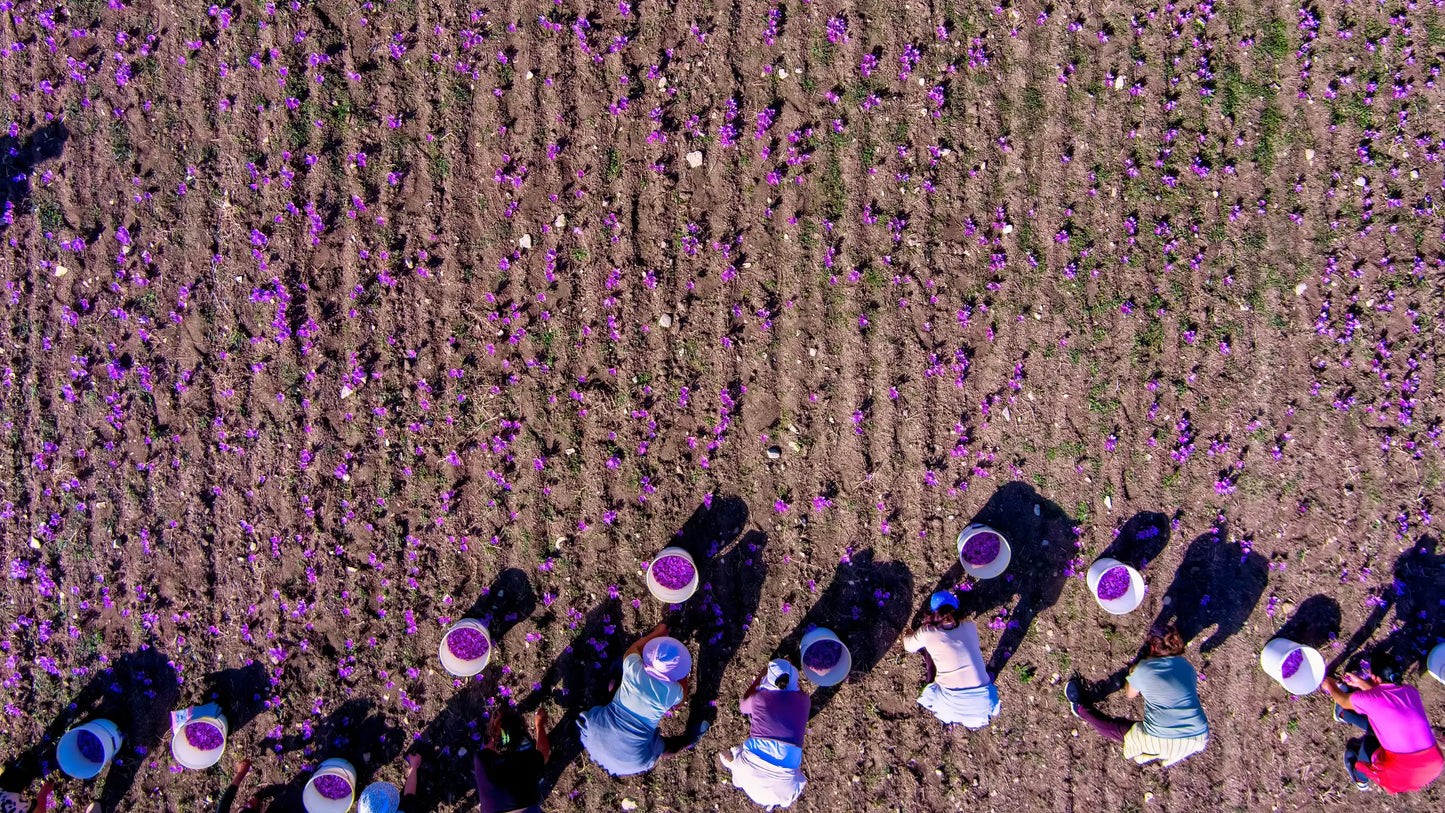Offer
Provide additional details about the offer you're running.

In the realm of spices, saffron stands unparalleled. Its exquisite flavor, vibrant hue, and the intricate farming process make it the world's most expensive spice. As global demand for saffron surges, the emphasis on sustainable saffron farming becomes paramount.
Let's delve deeper into the world of saffron farming and understand why sustainability is the need of the hour.
Every Crocus sativus flower yields only three saffron stigmas. These stigmas are meticulously hand-harvested during the short saffron flowering season.
It's a labor of love and precision, with nearly 75,000 flowers needed to produce a single pound of saffron.
This intensive process gives a glimpse into why saffron holds such value and why its farming practices need careful consideration.
With the high market value of saffron, some regions have witnessed a surge in over-farming.
The pressure to produce more has led to excessive use of pesticides, artificial growth enhancers, and other unethical practices. Such methods not only degrade the land, making it barren over time, but also compromise the quality and authenticity of the saffron produced.
Counterfeit saffron, which is sometimes mixed with other ingredients, has also found its way into the market, deceiving consumers and undermining genuine producers.
Transitioning to organic farming practices is a cornerstone of sustainable saffron farming.
By shunning chemical fertilizers and pesticides, farmers ensure the saffron remains uncontaminated, retaining its natural properties.
Organic farming also enriches the soil, enhancing its fertility and ensuring a healthier yield year after year.
Consumers, too, are becoming more conscious and are willing to pay a premium for organically grown saffron, knowing its purity and potency are uncompromised.
Saffron farming can be water-intensive. In regions where water is scarce, this poses a significant challenge. Sustainable saffron farming practices have begun to incorporate advanced water-saving techniques.
Drip irrigation, for instance, ensures water reaches the plant roots directly, reducing wastage.
Mulching, another technique, retains soil moisture, reducing the need for frequent watering.
By adopting such methods, farmers can produce a bountiful saffron harvest without depleting local water resources.
Sustainable saffron farming transcends beyond the fields; it encompasses the entire ecosystem, including the farmers and harvesters. Hand-harvesting saffron is a labor-intensive task, often requiring hours of meticulous work.
Ensuring fair wages, safe working conditions, and respect for the workers is integral to sustainable farming. Fair trade practices ensure that a significant portion of the profits goes back to the farming communities, uplifting them and ensuring a fair price for their hard work.
As consumers become more discerning and environmentally conscious, their role in promoting sustainable saffron farming grows.
By choosing to buy saffron from certified organic and fair-trade sources, consumers can directly support ethical farming practices.
Reading labels, understanding the source of the saffron, and being willing to pay a bit more for genuine, sustainably farmed saffron can make a significant difference.
Saffron, with its golden threads, has the power to add magic to dishes and offer a plethora of health benefits. But the real magic lies in how it's cultivated. Sustainable saffron farming is not just an ethical choice; it's a necessity for the planet, the farmers, and for all of us who cherish this golden spice. As we stand at the crossroads, the path of sustainability ensures that the legacy of saffron is preserved for generations to come.
Keywords: Sustainable Saffron Farming, Organic Farming, Water Conservation, Ethical Labor, Golden Spice, Fair Trade, Consumer Awareness.